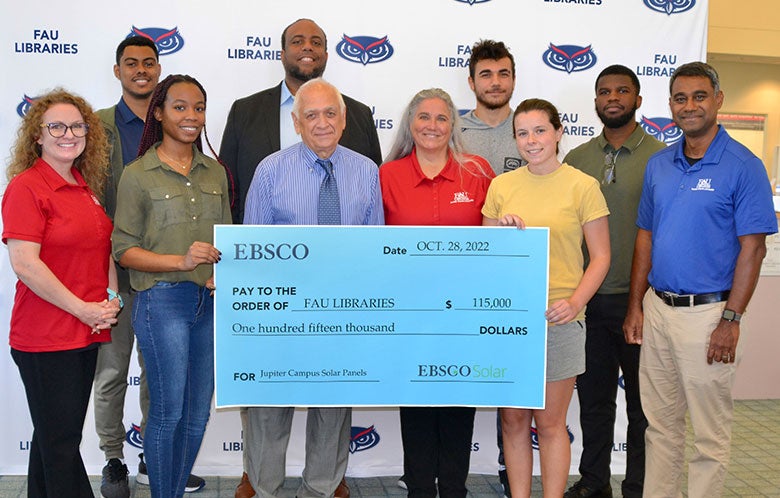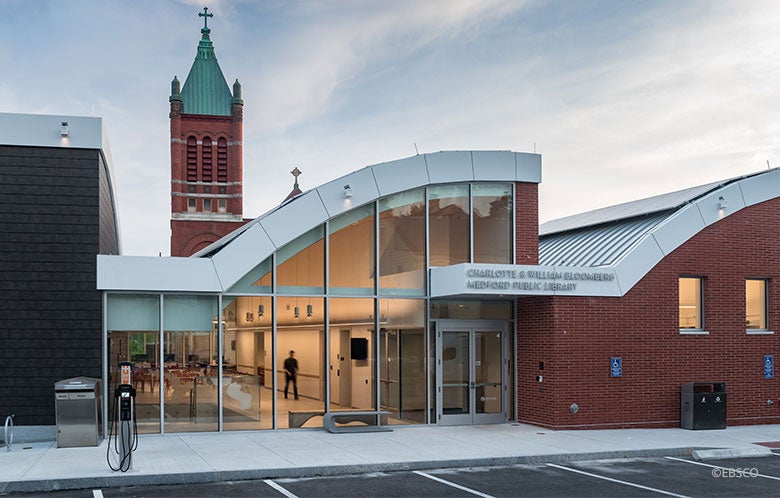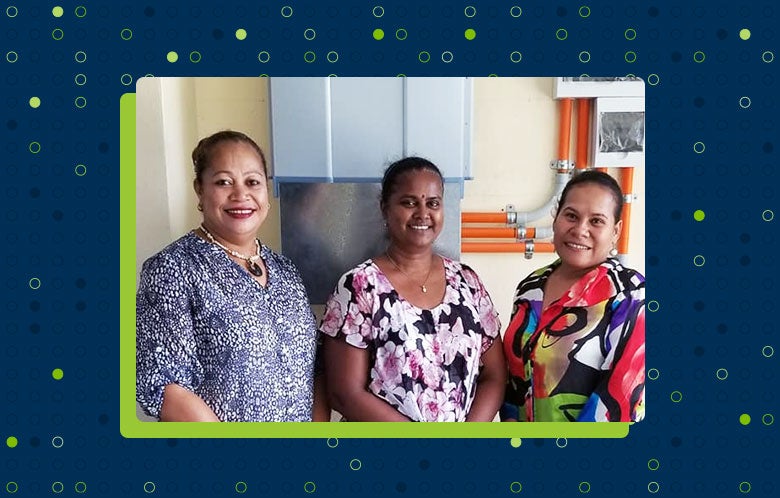In 2022, John D. MacArthur Campus Library at Florida Atlantic University (FAU) in Jupiter, FL, applied for the EBSCO Solar grant program. In June, they took home one of three awards given to libraries looking to implement solar arrays on campus. FAU was already engaged in several sustainability activities, and the library was excited to contribute to these activities through specific curriculum and student activities. We spoke with Dawn Frood, FAU Collection Development Librarian, to learn about FAU’s sustainability efforts and how the library plans to utilize their solar funds to contribute to these efforts.
When applying for the EBSCO Solar grant, what did your library propose?
Our proposal included the design and installation of a $115,000 solar array at the Jupiter campus that will cover 15 percent of the library's energy usage. The EBSCO Solar grant compliments an existing goal of the Jupiter Campus’s Master Plan to offset 50 percent of the building level energy supply from off-campus solar power installations. The project’s system output is estimated at 66,000 kWh/Year, with an expected annual savings of $5,772 on electric costs.
We also put forth a curriculum plan, which is made possible by solar grant funds, and on-site/web-based digital tools for engaging FAU students and faculty, as well as families, educators and businesses in the surrounding communities.
What does the curriculum look like for this project?
The project is a collaboration between the Department of Ocean and Mechanical Engineering and the FAU Libraries.
During the Fall 2022 and Spring 2023 semesters, senior design students from the FAU College of Engineering worked on an initial project assessment and design plan for the array. In the Summer of 2023, students enrolled in the Introduction to Solar Energy, a course which expanded on the work provided by the senior design students. Students completed the design of the solar system through modeling, hands-on measurement and installation practices. In the future, students and faculty will utilize the system to gain proficiencies in monitoring solar energy production, determine electric consumption and troubleshoot the solar system for the library building.
What is particularly unique about this project?
In addition to delivering sustainable energy, this project provides students with hands-on experience with photovoltaic systems provided by an MIT-educated faculty member, who is a pioneer in the field. FAU is also proud to serve the most diverse student population in the State University System of Florida, and this program provides extended opportunities to a diverse group of students. For more information, we complied all our student projects and photos onto our website, showcasing the many educational components made possible by this grant.
What is the one piece of advice that you’d give to libraries looking to apply for the EBSCO Solar grant in 2024?
One piece of advice I would offer is to emphasize community impact. This can be accomplished by highlighting how the solar project will benefit the library's patrons and the broader community and includes discussing potential educational opportunities, community engagement, and how the library will serve as a model for sustainable practices.



